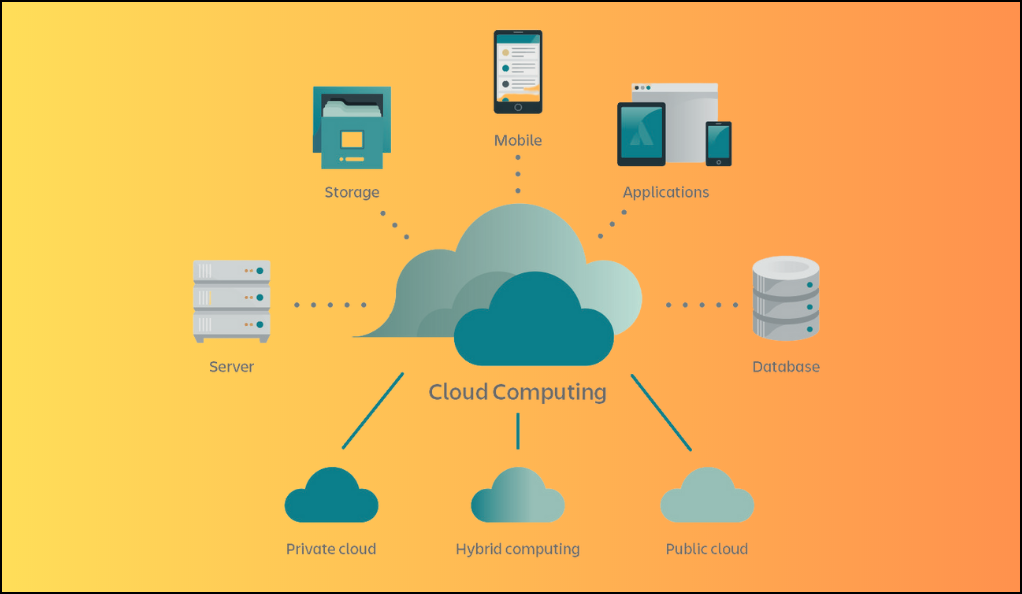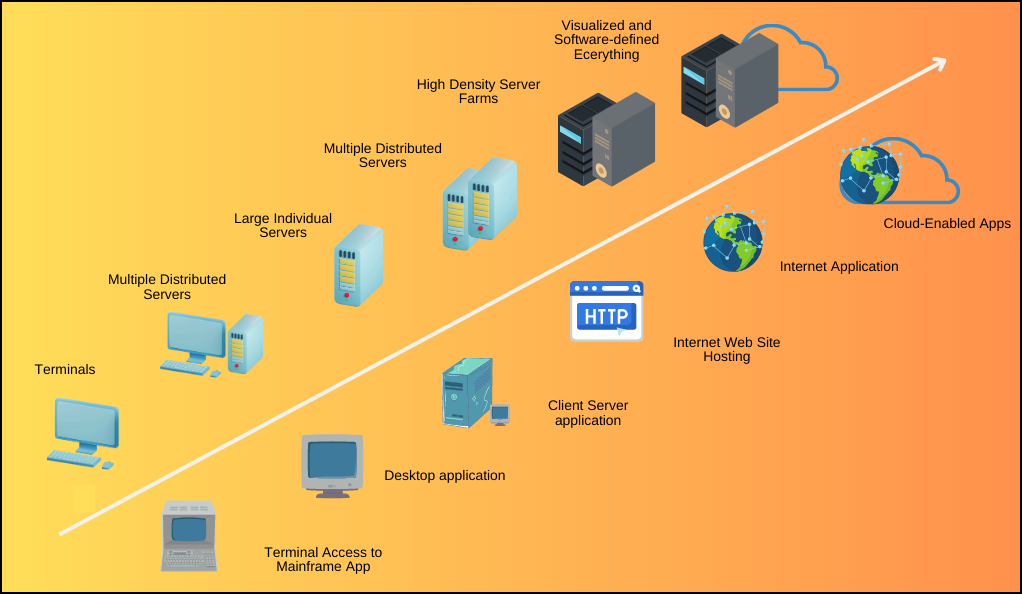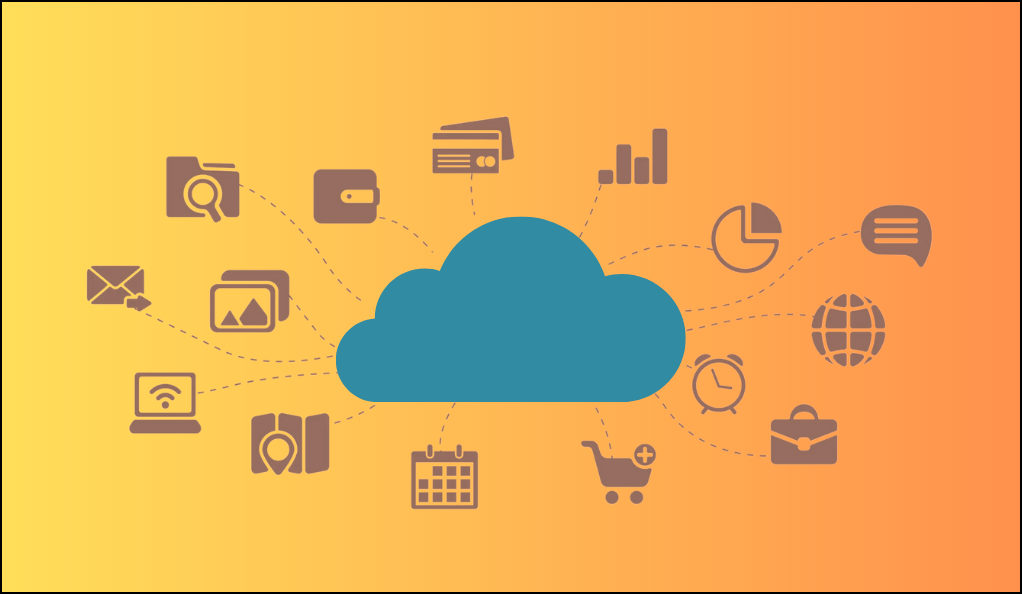Cloud Computing in Crypto: The New Norm
Introduction
In today’s digital age, two technologies have emerged as frontrunners in revolutionizing how we process, store, and transact data: cloud computing and cryptocurrency. While each has its distinct trajectory and purpose, their convergence promises a transformative impact on the digital landscape. This section delves deep into the essence of these technologies, their evolution, and the potential they hold when combined.
Understanding Cloud Computing

Cloud computing refers to the delivery of various services over the internet, including storage, databases, servers, networking, software, analytics, and intelligence. Instead of owning their own computing infrastructure or data centers, companies can rent access to anything from applications to storage from a cloud service provider. This offers businesses flexibility, scalability, and potential cost savings.
Key Features of Cloud Computing
- On-demand self-service: Users can provision computing capabilities as needed without requiring human interaction.
- Broad network access: Services are available over the network and accessed through standard mechanisms.
- Resource pooling: Multiple customers can share the same physical resources, albeit with their data and applications kept separate.
- Rapid elasticity: Capabilities can be rapidly and elastically provisioned to scale out, and rapidly released to scale in.
- Measured service: Cloud systems automatically control and optimize resources based on the type of service required.
The Rise of Cryptocurrency
Cryptocurrency is a type of digital or virtual currency that uses cryptography for security, making it resistant to counterfeit. Unlike traditional currencies, cryptocurrencies operate on a technology called blockchain, which is a decentralized technology spread across many computers that manage and record transactions.
Key Features of Cryptocurrency
- Decentralization: Unlike centralized banking systems, most cryptocurrencies operate on a decentralized platform.
- Anonymity: Transactions can be made semi-anonymous.
- Transparency: Due to the open-source nature of the blockchain, anyone can view transactions.
- Security: Cryptographic techniques underpinning these currencies make them secure and hard to counterfeit.
- Global and Digital Nature: Cryptocurrencies can be sent or received anywhere in the world and do not rely on traditional banking systems or physical infrastructure.
The Convergence: Why it Matters
The integration of cloud computing with cryptocurrency can be likened to the merging of an efficient transport system (cloud) with a revolutionary fuel (crypto). Cloud platforms can offer the infrastructure, storage, and computational power required by complex cryptographic algorithms and the ever-growing blockchain. On the other hand, the decentralized, transparent, and secure nature of cryptocurrencies can enhance the trustworthiness and efficiency of cloud services.
Comparing Cloud Computing and Cryptocurrency
| Feature | Cloud Computing | Cryptocurrency |
|---|---|---|
| Primary Use | Data storage, processing, and management | Digital transactions |
| Nature | Centralized (mostly) | Decentralized |
| Security | Depends on the service provider | Inherent due to cryptographic techniques |
| Accessibility | Internet-based, global access | Global, requires a digital wallet |
| Scalability | Highly scalable based on demand | Depends on the cryptocurrency type and its underlying technology |
The Evolution of Cloud Computing in Crypto

The intertwining of cloud computing and cryptocurrency is not a mere coincidence but a result of the evolving needs of the digital world. As both technologies matured, they found common ground in addressing some of the most pressing challenges of the 21st century. Let’s journey through the evolution of this convergence.
The Early Days: Siloed Progression
In the initial stages, cloud computing and cryptocurrency developed in parallel, addressing distinct challenges. Cloud computing emerged as a solution to the increasing demand for storage, computational power, and on-demand IT resources. Meanwhile, cryptocurrency, with Bitcoin leading the charge in 2009, was a response to the demand for a decentralized, transparent, and global currency system.
The Need for Robust Infrastructure
As cryptocurrencies gained popularity, the underlying technology, blockchain, required more computational power. Mining, a process where transactions are verified and added to the blockchain, became resource-intensive. This demand for resources led to the integration of cloud platforms, offering scalable solutions to crypto enterprises and individual miners.
Cloud Platforms Supporting Crypto Infrastructures
Major cloud providers recognized the potential early on. Platforms like Amazon Web Services (AWS), Microsoft Azure, and Google Cloud started offering blockchain-as-a-service (BaaS). These services allowed businesses to develop, deploy, and manage blockchain applications with ease, without the need for extensive infrastructure.
Leading Cloud Providers and Their Blockchain Services
| Cloud Provider | Blockchain Service | Key Features |
|---|---|---|
| Amazon Web Services (AWS) | AWS Blockchain Templates | Pre-set blockchain frameworks, easy deployment, integrated with AWS services |
| Microsoft Azure | Azure Blockchain Workbench | Simplified development, pre-built networks and infrastructure, integration with Azure services |
| Google Cloud | Google Cloud Blockchain | Native integration with Google services, high scalability, secure environment |
Decentralized Cloud Solutions
The convergence didn’t stop at traditional cloud providers. Innovators in the crypto space envisioned a decentralized cloud, where storage and computational resources are distributed across a network of individual contributors. Projects like Filecoin and Storj emerged, offering decentralized storage solutions powered by blockchain.
The Synergy Effect
The combination of cloud computing and cryptocurrency has led to a synergy where both technologies amplify each other’s strengths. Cloud platforms benefit from the security, transparency, and decentralization of blockchain, while cryptocurrency ecosystems leverage the scalability, flexibility, and robustness of cloud infrastructures.
Benefits of Integrating Cloud with Crypto
The fusion of cloud computing and cryptocurrency is more than just a technological trend; it’s a paradigm shift that offers a plethora of benefits. From scalability to enhanced security, the integration of these two powerhouses is reshaping the digital landscape. Let’s delve into the multifaceted advantages of this convergence.
- Scalability and Flexibility
One of the primary benefits of cloud computing is its inherent scalability. As crypto platforms grow and transaction volumes surge, the need for additional resources can be met almost instantaneously with cloud infrastructures. This scalability ensures that crypto platforms can handle massive transaction loads without compromising on performance.
- Enhanced Security and Data Protection
Blockchain, the backbone of cryptocurrencies, is renowned for its security features. When combined with the advanced security protocols of cloud platforms, the result is a fortified environment. Features like encryption, multi-factor authentication, and regular backups further enhance the security of crypto transactions and data.
- Cost-Effective Solutions
Setting up and maintaining a robust IT infrastructure can be capital-intensive. Cloud solutions offer a cost-effective alternative for crypto startups and established businesses alike. By leveraging cloud services, companies can avoid hefty upfront investments and opt for pay-as-you-go models, aligning expenses with actual usage.
- Global Reach and Accessibility
Cloud platforms, with their global network of data centers, ensure that crypto platforms can offer seamless experiences to users worldwide. This global reach ensures reduced latency, faster transaction speeds, and 24/7 accessibility, irrespective of geographical boundaries.
- Streamlined Development and Deployment
Blockchain-as-a-Service (BaaS) offerings from major cloud providers have simplified the development and deployment of crypto applications. Developers can leverage pre-built templates, tools, and frameworks, accelerating the time-to-market and ensuring best practices are followed.
- Integration with Advanced Technologies
Cloud platforms are continuously evolving, integrating cutting-edge technologies like Artificial Intelligence (AI), Machine Learning (ML), and Internet of Things (IoT). Crypto platforms can leverage these advancements to offer predictive analytics, automated trading, and smart contract optimizations.
- Environmental Sustainability
One of the criticisms of cryptocurrency, especially Bitcoin, is its energy consumption. Cloud providers, with their focus on green energy and sustainable practices, offer a more environmentally friendly alternative to traditional crypto mining setups. This shift not only reduces the carbon footprint but also aligns with the global emphasis on sustainability.
- Democratizing the Crypto Landscape
Cloud solutions have democratized access to powerful computing resources. This democratization ensures that individual developers, startups, and enthusiasts can participate in the crypto revolution without the need for significant capital investments.
Challenges and Concerns
While the integration of cloud computing and cryptocurrency offers a plethora of benefits, it’s not without its challenges. As with any technological convergence, there are hurdles to overcome, concerns to address, and lessons to be learned. This section delves into the potential pitfalls and the ongoing efforts to mitigate them.
Data Privacy Issues in Cloud Platforms
One of the primary concerns with cloud computing is data privacy. Storing sensitive information, especially financial data related to cryptocurrency, on third-party servers raises questions about data access, control, and potential breaches.
- Centralized Vulnerability: Centralized cloud servers can become prime targets for hackers. A single breach can expose vast amounts of data.
- Regulatory Challenges: Different countries have varying regulations concerning data storage and privacy. Navigating this complex regulatory landscape can be daunting for crypto platforms.
The Energy Consumption Debate
Cryptocurrency mining, especially Proof-of-Work (PoW) algorithms, is notoriously energy-intensive. While cloud platforms might offer more energy-efficient infrastructures, the overall energy consumption of large-scale crypto operations remains a concern.
- Environmental Impact: The carbon footprint of extensive crypto mining operations can be significant, leading to environmental concerns.
- Transition to Green Energy: While many cloud providers are transitioning to renewable energy sources, the pace and scale of this transition are subjects of debate.
Regulatory and Compliance Hurdles
The decentralized nature of cryptocurrencies often clashes with the centralized regulations of nations. Ensuring compliance, especially on cloud platforms operating across multiple jurisdictions, is a significant challenge.
- Legal Ambiguity: The legal status of cryptocurrencies varies across countries. Some nations have embraced them, while others have imposed strict regulations or outright bans.
- Tax Implications: The storage and transaction of cryptocurrencies on cloud platforms raise questions about taxation and revenue declaration.
Security Concerns Beyond Encryption
While blockchain is inherently secure, the interfaces and applications built around it, especially on cloud platforms, can be vulnerable.
- Smart Contract Vulnerabilities: Flaws in smart contract codes can lead to significant losses.
- API Security: Insecure application interfaces can become entry points for malicious actors.
Interoperability Among Different Blockchain Platforms
With the rise of multiple blockchain platforms and cryptocurrencies, ensuring seamless interoperability has become crucial. Cloud platforms need to support this integration, which is often easier said than done.
- Standardization Issues: Lack of standard protocols can hinder the smooth interaction between different blockchains.
- Complex Integrations: Bridging different blockchains might require intricate solutions, adding to the complexity of cloud-crypto operations.
Economic Volatility of Cryptocurrencies
The volatile nature of cryptocurrency markets can pose challenges for cloud providers offering services in exchange for crypto payments. Fluctuating values can impact revenue streams and financial planning.
Emerging Trends and Innovations
The fusion of cloud computing and cryptocurrency is a dynamic landscape, continuously evolving with technological advancements, market demands, and innovative solutions. As we stand at the cusp of a new era, several trends and innovations are shaping the future of this convergence. This section delves into the most promising developments that are set to redefine the boundaries of digital transactions and cloud-based solutions.

The Rise of Non-Public and Permissioned Networks
While public blockchains like Bitcoin and Ethereum have garnered significant attention, there’s a growing interest in non-public, permissioned networks. These networks offer:
- Enhanced Privacy: Transactions and data are accessible only to authorized participants.
- Scalability: Without the need for widespread consensus, permissioned networks can process transactions faster.
- Customization: Businesses can tailor these networks to their specific needs, ensuring optimal performance.
Technological Advancements Enhancing Transaction Speeds
One of the criticisms of certain cryptocurrencies has been their transaction speeds. However, with innovations like the Lightning Network for Bitcoin and Layer 2 solutions for Ethereum, transactions are becoming faster and more efficient.
Interoperability Among Different Blockchain Platforms
With multiple blockchain platforms in existence, there’s a pressing need for interoperability solutions. Projects like Polkadot and Cosmos are leading the charge, enabling different blockchains to communicate and share information seamlessly.
Decentralized Finance (DeFi) and Cloud Integration
DeFi, or decentralized finance, is revolutionizing the financial sector by offering decentralized alternatives to traditional financial services. Cloud platforms are playing a pivotal role by providing the necessary infrastructure, analytics, and scalability solutions to support the burgeoning DeFi ecosystem.
Quantum-Resistant Cryptocurrencies
The potential advent of quantum computing poses a threat to the cryptographic security of existing cryptocurrencies. In response, there’s a growing emphasis on developing quantum-resistant algorithms to safeguard the future of digital currencies.
Enhanced User Experience with DApps
Decentralized Applications (DApps) are redefining user experiences by offering decentralized alternatives to traditional applications. With cloud platforms facilitating the backend infrastructure, DApps are becoming more user-friendly, accessible, and feature-rich.
Green Cryptocurrency Mining
Environmental concerns associated with cryptocurrency mining are leading to a shift towards more sustainable practices. Cloud providers, with their green energy initiatives, are at the forefront of this transition, offering eco-friendly mining solutions.
The Future of Cloud and Crypto
As we venture into the next decade, the convergence of cloud computing and cryptocurrency is poised to play a pivotal role in shaping the digital landscape. Their fusion, which began as a technological experiment, has now matured into a robust ecosystem that promises to redefine global economic paradigms, business models, and individual interactions. Let’s explore the potential shifts and transformations that await us.
A New Economic Paradigm
The decentralized ethos of cryptocurrency, combined with the scalability and flexibility of cloud computing, is set to challenge traditional economic structures.
- Decentralized Marketplaces: Peer-to-peer platforms, devoid of intermediaries, will facilitate direct exchanges, reducing costs and enhancing efficiency.
- Global Financial Inclusion: Cryptocurrencies, accessible via cloud platforms, will offer financial services to the unbanked populations, bridging economic disparities.
Business Transformations
Businesses, irrespective of their size and domain, will witness transformative changes driven by blockchain and cloud innovations.
- Supply Chain Revolution: Transparent, tamper-proof, and real-time tracking will ensure product authenticity and streamline logistics.
- Decentralized Business Models: Traditional hierarchical structures will give way to decentralized, community-driven models, fostering innovation and collaboration.
Personal Empowerment and Privacy
Individuals will have greater control over their data, finances, and digital interactions.
- Self-Sovereign Identity: Blockchain-based identity solutions, hosted on cloud platforms, will ensure individuals have complete control over their personal data.
- Private Transactions: Enhanced cryptographic solutions will ensure that personal financial transactions remain private, secure, and tamper-proof.
Evolution of Governance and Regulations
As the digital realm evolves, so will the regulatory landscape. Governments and regulatory bodies will need to adapt to the decentralized nature of cryptocurrencies and the global reach of cloud platforms.
- Smart Governance: Blockchain-based voting systems, public records, and administrative processes will ensure transparency and reduce bureaucratic inefficiencies.
- Adaptive Regulations: Regulatory frameworks will evolve to strike a balance between fostering innovation and ensuring consumer protection.
Education and Skill Development
The fusion of cloud and crypto will necessitate new skills and knowledge domains.
- Blockchain Education: Academic institutions will introduce courses on blockchain development, cryptography, and decentralized systems.
- Cloud Mastery: As businesses increasingly rely on cloud platforms, there will be a surge in demand for cloud architects, engineers, and security experts.
A Sustainable Digital Ecosystem
The emphasis will shift towards creating a digital ecosystem that’s not only technologically advanced but also environmentally sustainable.
- Green Mining Practices: Renewable energy sources will power cryptocurrency mining operations, reducing the carbon footprint.
- Sustainable Cloud Infrastructures: Cloud providers will prioritize green energy, efficient cooling systems, and sustainable hardware to minimize environmental impact.
Conclusion
In conclusion, the fusion of cloud computing and cryptocurrency is not just a technological trend; it’s a movement that promises to reshape our world. From economic structures to personal interactions, every facet of our lives stands to be transformed. As we navigate this evolving landscape, staying informed, adaptable, and open to innovation will be key. The future is decentralized, digital, and cloud-powered, offering unprecedented opportunities and challenges. Embracing this future will require collaboration, education, and a shared vision of a world where technology serves as a catalyst for positive change.
Bitcoin-up is dedicated to providing fair and trustworthy information on topics such as cryptocurrency, finance, trading, and stocks. It's important to note that we do not have the capacity to provide financial advice, and we strongly encourage users to engage in their own thorough research.
Read More